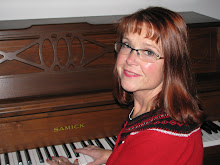The answer varies. While babies are in a recessive language stage and take in every word and label, toddlers are in an expressive stage with a vocabulary that grows to several thousand words by the age three. Preschool-aged children are in a storytelling stage and love to learn and express new words that way.
By reading together, your children will internalize basic skills and concepts important for true literacy, such as expanding vocabulary, promoting critical thinking, and providing predictability.
The Power of Reading: When you read to children, you are building pathways in their brains needed for successful reading experiences. They will develop auditory perception that allows them to think about how words sound. Listening to stories helps children enhance their vocabularies and use longer sentences; it increases their attention spans, ability to focus on what is being said and gives them a desire to read.As you read together, ask specific questions about the characters and the action of the story and the colors and shapes of the illustrations. Then try leaving out key words or phrases, allowing toddlers and preschoolers to "help" by contributing the missing words while toddlers can assist in turning the pages. Keep your baby engaged by "bouncing" to the repeated phrases through out the book.
A Rough Guide for Language Acquisition:
- Expect first words between 12 and 18 months.
- There will probably be a "spurt" of language development before 2 years.
- Anticipate hearing 4 to 5 word sentences by 4 years.
- Grammar should be correct most of the time by 4 years.
- "Other people" will understand almost everything your child says by the time he or she is 4!.
List of on-line resources to help teach your children how to read!
- Games, printouts and information to help children learn to read! http://www.starfall.com/
- Great selection of books to help with reading/language acquisition that you can buy or go check out at the library http://www.kaplanco.com/childrens-books.asp
- HELP: Head Start English: Language Learners website: excellent list of book for children learning English or any child. http://www.hellp.org/tools/docs/list%20of%20children's%20books.pdf
Get your Children Moving!
 The Movement-Vision-Reading Connection: Our visual sense works when our eyes are actively moving. When the body and head move, the vestibular system is activated, and so the eye muscles are strengthen as they move in response. The more the eyes move, the more the muscles of both eyes work together. Later on, this eye teaming will enable toddlers to focus on objects as well as to track and then help them to be able to concentrate later as they learn to read in school.
The Movement-Vision-Reading Connection: Our visual sense works when our eyes are actively moving. When the body and head move, the vestibular system is activated, and so the eye muscles are strengthen as they move in response. The more the eyes move, the more the muscles of both eyes work together. Later on, this eye teaming will enable toddlers to focus on objects as well as to track and then help them to be able to concentrate later as they learn to read in school. An Exercise in Sensorimotor Learning
(which helps the movement/vision/reading connection)
I've Been Workin on the Railroad:
In this activitiy children hear actions being labeled, gross motor and locomotor skills are being developed and they also learn stop and go movements. All these skills help the brain to strengthen neural connections which increase the child's learning ability.
SAY: First we need to fix the RR track!
DO: Clasp hands together and raise them over one shoulder as if lifting a heavy hammer. Bend at the waist and thrust arms down, as if hammering. Label all actions then begin singing first part of song.
SAY: Whew! That was hard work. We deserve a break; let's run around the room while we sing Dinah won't you blow!
SING: Dinah, won't you blow section while running. Freeze and stop singing after the final note of this section. SAY: Stop! Back to work on those RR tracks!
PUT IT TOGETHER: Start the song again, singing and moving to the "I've been working...."section followed by the "Dinah won't you blow section". Do the hammer motion to slow part and then running during Dinah part. Repeat
I've Been Workin on the Railroad
I've been workin on the railroad all the live long day.I've been workin on the railroad just to pass the time away.
Don't you hear the whistle blowing?
Rise up so early in the morn
Don't you hear the Captain shouting, Dinah blow your horn?
Dina won't you blow, Dinah won't you blow, Dinah won't you blow your horn
Dina won't you blow, Dinah won't you blow, Dinah won't you blow your horn
Please leave a comment or Tweet @Angelmusik




No comments:
Post a Comment